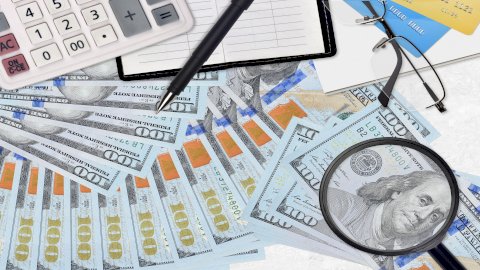

How to become a Physician Assistant?
A physician assistant (PA) is a highly educated and trained medical care professional, whose job description is closely and accurately compared to that of a doctor. A nationally certified and state licensed physician assistant works with patients to diagnose and treat general medical conditions, much like a doctor (MD) would.
Like a doctor, a physician assistant also has the ability to prescribe medication to patients. Many people elect to visit a physician assistant rather than a doctor because appointments could potentially be easier to get and costs slightly lower. It is important to specify that a physician assistant is not a physician's assistant.
Difference between a Physician Assistant and a Doctor?
A common question often posed is, what is the difference between a physician assistant and a doctor? There are some differences between these two medical professionals, and they can be helpful in determining which road you might want to take.
First, a physician assistant often works under the supervision of a doctor, whereas a doctor has the freedom to work without such supervision. That is not to say that a doctor does not have to answer to anyone, that is not the case. There are chief physicians and of course medical boards and commissions aimed at keeping doctors in line. However, doctors do have a little more freedom, and do supervise physician assistants.
Another difference is the time and education required to become a doctor. It takes more time and education to become a doctor. Both medical professionals must obtain a bachelor’s degree, which typically takes 4 years to complete.
From there, a doctor will attend a 4-year medical school followed by a residency, which typically ranges from 3 to 7 years.
PA programs from accredited schools typically take 3 years to complete, with a combination of intense study and hands-on patient contact. At least 2,000 hours of clinical rotation during the program is quite common. Upon completion of the program, most PAs will have two bachelor's degrees and one master's degree.

How much money does a Physician Assistant make?
There are other differences between a doctor and a physician assistant, but the final difference I will note here is with regards to compensation. Money alone should not be your motivation, especially in a field involving patient care, but we do know that money is a factor in considering one's career path.
From the above two paragraphs, you might be able to come to the conclusion that a doctor gets paid more than a physician assistant. After all, it takes more time and education to become a doctor, and they often provide supervision for the physician assistants. You would be correct.
According to the U.S. Bureau of Labor Statistics, the 2020 median pay for doctors was $208,000. That is compared to the 2020 median pay for physician assistants which was $115,000. With that being said, these are both well-paying jobs that afford most professionals in them a nice lifestyle.
What does a Physician Assistant do?
According to OrthoCarolina, here are some fun facts about physician assistants that you might not know:
- • PAs can order advanced imaging (MRI, CT, Ultrasound)
- • PAs can prescribe medication
- • Many PAs have worked as nurses, paramedics, athletic trainers, etc prior to going to PA school
- • PAs assist in surgery
- • PAs work in all medical specialties
- • PAs can switch between specialties as training is all inclusive
- • PAs can assess, diagnose and treat medical conditions
- • Physicians in other specialties often consult PAs for medical advice

Being a Physician Assistant
As always, we have had the pleasure of interviewing many PAs over the years. Here is what some of them have said about their chosen profession:
"I love that I am expected to sit down and really listen to you, and have a good conversation with you, and get a really thorough history. I love establishing relationships with patients. I like my field also because we do have follow ups. It's not something where I might meet you, treat you, and never see you again. I love that it's a procedure heavy specialty. I love doing injections, aspirations, casting, and reducing fractures." - Mary
"I can't believe how lucky I am some days that I get to earn a living by helping people improve their lives. It varies from diagnosing someone with pneumonia and treating them for it, all the way to just being there on sometimes what is the worst day of their lives and just trying to make things a little better for them." - Randy
"If you can get into doing an EMT program during PA school that can give you hours and experience. And it lets you see the good and the bad, there are some traumas and those sorts of things. How do you handle that under pressure?" - Mary!
"Your prerequisites for PA school and MED school are very similar. Your basic sciences, o chem, chemistry, biology, anatomy, physiology. So, a lot of that is very similar and you want to make sure you are doing very well in your coursework, especially your sciences because PA school is very competitive." - Randy
A physician assistant is a highly trained and certified medical professional. PAs are not "wannabe' doctors, and they are not to be confused with physician's assistants. They are in a class all their own. The road to becoming a physician assistant is quicker than to becoming a doctor, but the program is quite intense and the competition for acceptance is stiff. Upon program completion however, you will find yourself partaking in many of the duties that doctors perform, with the autonomy to work closely with patients to diagnose and treat their medical issues. It can be a high paying and very rewarding career!
























